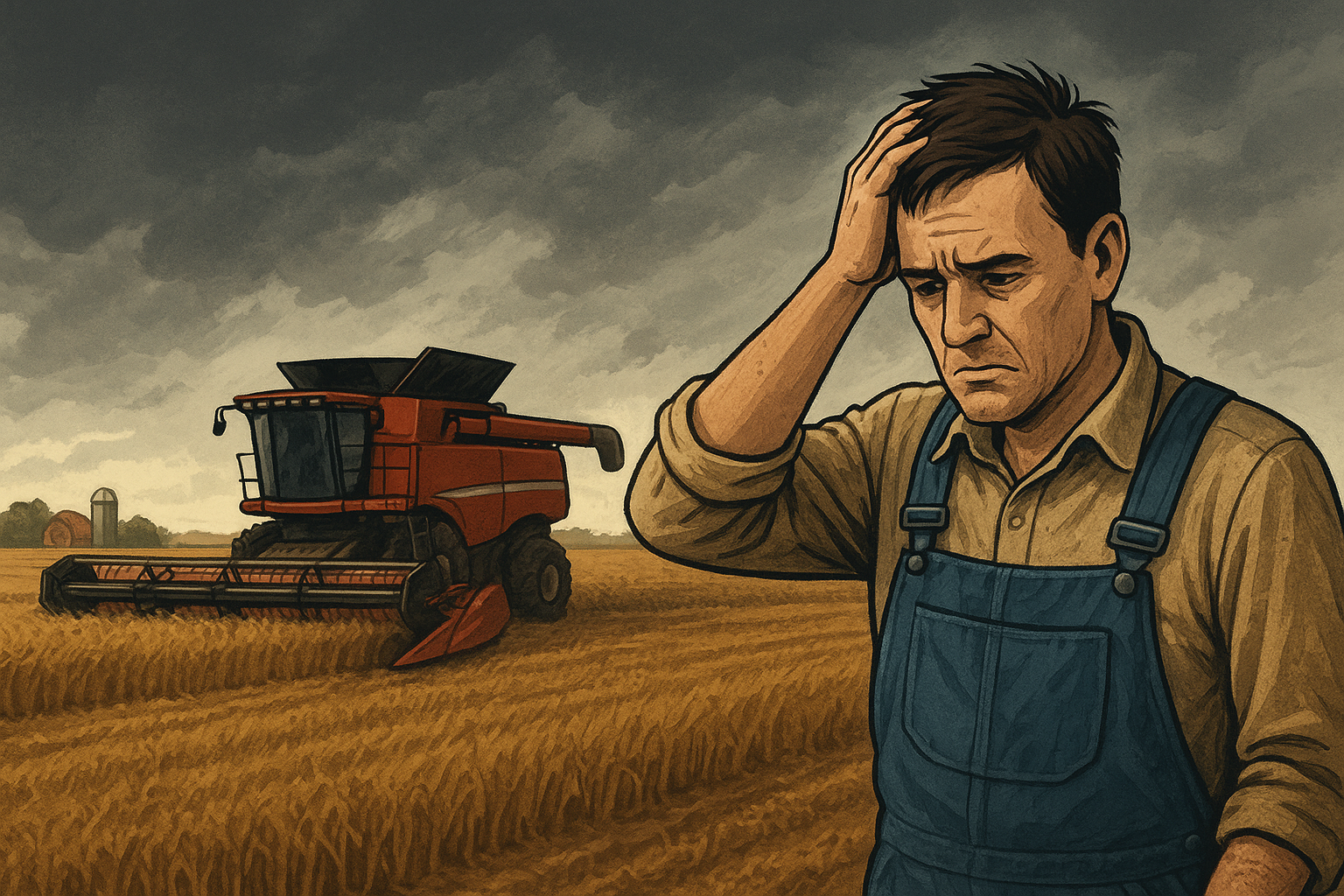Does Your Business Still Work?
Agriculture has always demanded resilience. While weather and markets still test that resilience, the nature of the challenge has shifted. The weight of managing the business has grown steadily. Producers now spend as much energy making decisions about money, people, and risk as they do growing food. Expectations have climbed, and the business side of farming has gotten sharper. It’s more complex, more demanding, and harder to stay ahead of.
It’s not just prices, weather, or policy. Pressure is building everywhere. Costs keep creeping up. A new combine costs more than most people’s houses. Land values often seem detached from what the land can actually produce. Borrowing adds risk without always adding return. Even well-run operations are feeling the squeeze.
Across the country, a hard conversation is unfolding. Many producers are starting to ask a tougher question: Can we keep doing this the way we always have?
Many will say yes and mean it. They’ve built businesses that are lean, quick to adapt, and tough. For others, the answer isn’t so clear, which can be particularly daunting when they’re unsure whether anyone will want to take on the farm after they’re finished. Growth used to be the default: add acres, add cows, add labour, add technology. The goal was to spread costs, gain efficiency, and stay competitive. But when growth brings more debt, more pressure, and more complexity without a clear payoff, it can start to feel like you’re building a prison for yourself, and maybe also the next in line.
You might know someone who doubled their acres in the past decade. Or someone who walked away, worn out after years of unpredictable volatility and thin margins. You might be somewhere in between, wondering what comes next and whether your business is built to carry you through. Second-guessing the decisions you didn’t make as much as the ones you did. Wondering what separates those who thrive from the ones who struggle, even when you’re all playing the same game.
Asking those questions isn’t weakness. It takes guts to pause and take a hard look at your situation. That kind of reflection isn’t easy. It takes discipline, objectivity, and the willingness to admit that things might need to change. But it’s exactly what’s needed. This isn’t about giving up or stepping back. It’s about making sure the business still works for you, for today and for tomorrow. A business where the workload matches your capacity. Where the cash flow can support the risk. Where your direction matches what you actually want, not just what you’ve always done. Where you’re confident about where you’re going, and why.
Some might call it becoming more professional. Others might say it’s just plain common sense. Either way, it means recognizing that what worked before might not work again, and that your next step doesn’t have to follow the old path. It’s about examining where you are, understanding how you got there, and choosing where you’d like to go next. Informed of these, your next moves become clearer.
There’s no single roadmap. The farms that thrive will be the ones that get their priorities, their finances, and their people aligned. Not perfectly, but intentionally. That could mean growing or staying the same size. It could mean bringing in a partner, handing things off, or taking a step back to think. It might mean replacing a full line of equipment or finally drawing a line on what land is worth chasing.
We often admire those who push through, no matter the obstacle. But sometimes the strongest move is to pause and ask: Is this still working? Not just on paper, but out in the field, in your gut, and in the rhythm of your days. If the answer is no, then it’s worth asking: what would it take to build a business that fits better? One that suits both your goals and your life, without needing to match anyone else’s version of success.
A good way forward is to pick one part of your business – like debt load, equipment, or workload – and ask, “Is this serving me, or am I just serving it?” Challenge the pattern. What if you didn’t do what you’ve always done? What are you actually trying to solve? What really matters to you? If you’re unsure where to begin, try writing down the three parts of your business that cause the most stress, and choose one to rethink from the ground up. That small step often reveals more than you’d expect.
Farming isn’t getting easier, but it remains worthwhile. The operations that will endure won’t just be bigger; they’ll be clearer in purpose and smarter in design. They’re built with intention, not just momentum. Built to be resilient, practical, and matched to what matters most to the people who run them. When business gets harder, it’s not a sign to throw in the towel. It’s a sign that it’s time to get serious about what success looks like to you and then shape your business with that vision in mind.
Blake Copley is a farm management consultant with Backswath Management Inc. He can be reached at 825-712-7684 or



